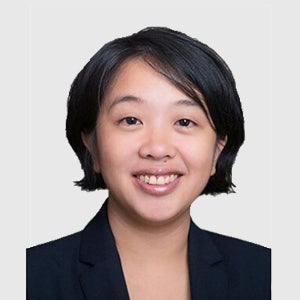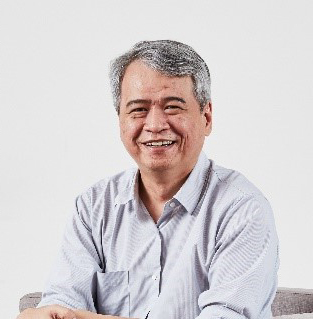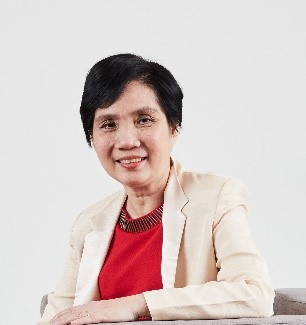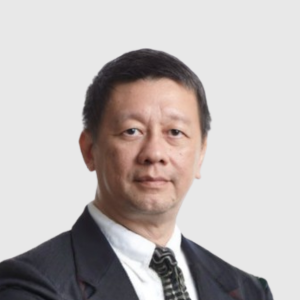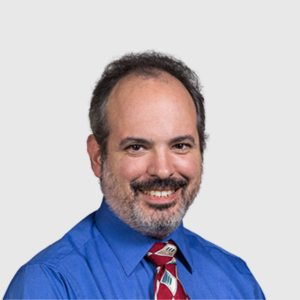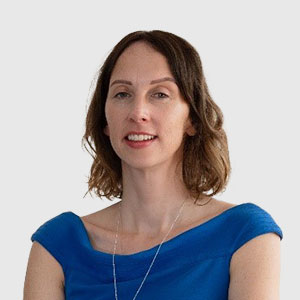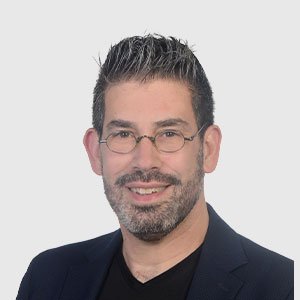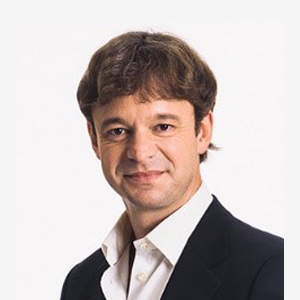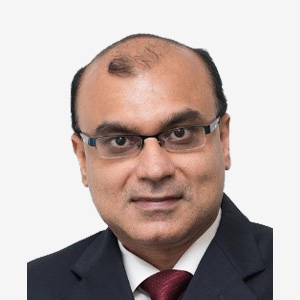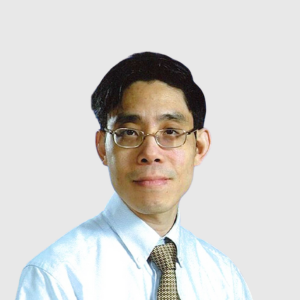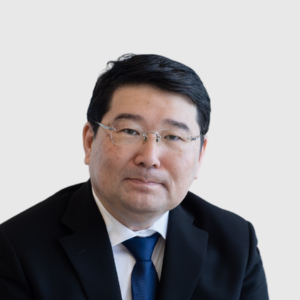All PhD students are required to pass elective courses (worth 16 Units). Courses offered by the School have been classified into 5 focal areas. Students can select courses that are best aligned with their research, expertise, and understanding to enhance their overall learning experience with us.
- Underpinning Biology of Diseases
- Techniques & Technology
- Innovation & Entrepreneurship
- Bioethics
- Pharmaceuticals & Drug Development
MDG5229 Advanced Topics in Signal Transduction – S1
MDG5243 Biology of Diseases – S1
MDG5245 Neuronal Signaling and Mechanisms of Effective Learning – S1
MDG5246 Infectious Diseases: Principles & Research Methods – S1
CDM5103 Advanced Topics in RNA Biology and Human Diseases – S1
| Course Code and Title (Units) | Course Coordinator(s) | Course write-up |
|---|---|---|
| MDG5108 Biostatistics for Basic Research (4 Units)Satisfactory or Unsatisfactory |
Dr Shen Liang | This course is served as a concept-based introduction to biostatistics, or to the use of numerical techniques to extract information from data and facts. It is aimed at students, researchers in life and health sciences, and health professionals who wish to learn modern research methods. The main learning objectives are to communicate scientific results, to develop tools to investigate the inherent variability introduced by sampling, to quantify uncertainty before progressing to the process of making inference about the population. Using computer software such as SPSS, the concepts and the statistical methods will be illustrated based on real life data arising from selected scientific and medical studies. |
| MDG5771 Graduate Research Seminar (4 Units)
Satisfactory or Unsatisfactory |
N.A. | This course aims to cultivate a strong research culture among graduate students by exposing students to diversified area of current research topics and to improve their communication skills through presentations and interactions with other researchers. Students are required to attend at least 7 out of the 10 seminars held each semester for 2 consecutive semesters. In addition, they are required to present at least once during the 2 semesters.
(For students admitted prior to AY2022/2023 intake) |
| NG5001 Academic Communication for Graduate Researchers (4 Units)
S/U Option: Allowed Pre-requisite: ES5000 and ES5001A (if required to take these courses) |
N.A. | Designed for all PhD students of the NUS Graduate School (NUSGS), this course facilitates further development of students’ academic literacies in critical reading, writing and oral presentation. For critical reading, students will be guided to deconstruct and evaluate arguments – competences which students will then deploy by writing a proposal. In writing the proposal, students will need to demonstrate the ability to use suitable academic conventions. This proposal will subsequently be delivered as an oral presentation to a cross-disciplinary audience. This course utilizes a blended learning approach, where students’ learning experiences will comprise in-class and online synchronous and asynchronous lessons and activities.
(For students admitted from AY2022/2023 intake onwards) |
| Course Code and Title (Units) | Course Coordinator(s) | Course write-up |
|---|---|---|
| MDG5102 Techniques in Biomedical Research (4 Units)
S/U Option: Allowed |
Dr Dennis Kappei, Department of Biochemistry | This course aims to develop understanding of the fundamental principles underlying common experimental techniques, as well as the advantages and limitations of each technique for specific research applications. This in turn will facilitate the critical analysis of experimental data. Techniques covered will include different ways to study nucleic acids, proteins and lipids, key recent advances such as next-generation sequencing and CRISPR, disease-specific approaches such as in stem cell and cancer biology, and the importance of big data analysis in the fast-evolving biomedical research landscape. |
| MDG5204 Advanced Topics in Fundamental and Applied Pharmacology (4 Units)
S/U Option: Allowed |
Dr Lai Kim Peng Mitchell, Department of Pharmacology | The course aims to help students gain an in-depth understanding of a range of topics including receptor biology, signal transduction, inflammation, autophagy, pharmacology of antivirals and neuropharmacology, using lectures and journal clubs given by clinical and basic science experts. |
| MDG5205 Neuroscience (4 Units)
S/U Option: Allowed |
Prof Ong Wei Yi, Department of Anatomy
Dr Jai Santosh Polepalli, Department of Anatomy |
This course develops the foundations of neuroscience essential for further research and clinical application. It begins by introducing students to the morphology and cell biology of the nervous system. This is followed by a discussion of the molecular events that occur during nerve conduction and synaptic transmission, and more complex levels of sensory, motor, and cognitive functions. The fundamental and clinical aspects of common neurodegenerative diseases and strategies to promote neural regeneration are then explored. Students will be introduced to common research techniques and shown examples of how these can be applied to solve problems in neuroscience. Suitable clinical problems will be introduced throughout the course to show the clinical context and application of scientific knowledge, as well as to integrate across disciplines. |
| MDG5207 Clinical Immunology and Immunotherapeutics (4 Units)
S/U Option: Allowed |
A/Prof Veronique Angeli, Department of Microbiology and Immunology | In the last decade significant advances have been made in our understanding of the molecular and cellular control of immune responses. These discoveries are now being translated into the design and testing of immunotherapeutic interventions for a range of diseases including cancer, autoimmunity, respiratory and infectious diseases. This course is for graduate students who wish to extend their knowledge and skills in both immunology and its translation to immunotherapeutics. The course aims to allow the students to understand the research process, from the fundamental discoveries at the forefront of immunological research, to the application of novel interventional immune-based therapies. |
| MDG5214 Research Skills (4 Unit)
S/U Option: Allowed |
A/Prof Chen Ee Sin, Department of Biochemistry | This course equips students with essential relevant research skills. The students will learn how to perform a comprehensive literature review of the current evidence, critique journal articles, use software such as Endnotes to compile references and learn how to write scientific papers and grants. Students will be taught how to develop a scientific poster or prepare oral presentations of scientific findings. In addition, students will learn about the major funding agencies and the Institutional Review Boards in Singapore, and the principles of research ethics. |
| MDG5215 Healthcare Law & Ethics (4 Unit)
S/U Option: Allowed |
Dr Sumytra Menon, Centre for Biomedical Ethics, Yong Loo Lin School of Medicine | This course is an introduction to healthcare law and clinical ethics. No experience in law or bioethics is needed. The course will cover the core legal and ethical issues in clinical practice including clinical decision-making (consent, mental capacity, refusal, end of life, role of family, mature minors, lasting powers of attorney, advance plans, best interests), medical negligence, patient confidentiality and disclosure, vulnerable adults and children at risk, innovative treatments and telemedicine. The course aims to develop skills of critical thinking and analysis to equip participants to apply bioethical and legal principles to various healthcare issues in healthcare practice. |
| MDG5216 Ethics in Infectious Disease and Public Health (4 Units)
S/U Option: Allowed |
Dr Harisan Unais Nasir, Centre for Biomedical Ethics, Yong Loo Lin School of Medicine | This course aims to equip students to identify and critically evaluate ethical considerations in policies, systems and interventions intended to protect and promote the health of populations. Students will be introduced to ethical theories and frameworks used in public health, and asked to consider the role of culture, values and context in applying these in practice. Seminars will revolve around topics in disease prevention and control, resource allocation in healthcare, and global health. Case studies in, e.g. vaccination ethics, use of technology in healthcare, tobacco control, etc, will illustrate the application of key principles. Students will be assessed via presentations and written submissions, and participation in class discussions and an online forum. |
| MDG5218 Biochemical and Genetic Approaches to Understanding Cell Biology (4 Units)
S/U Option: Allowed |
A/Prof Thilo Hagen, Department of Biochemistry | This course focusses on transferrable skills, with an emphasis on writing skills, personal reflections and individual goal setting. To develop writing skills, students will write a research paper based on cell biology related data with the help of generative AI tools (i.e. ChatGPT). Students need to submit the individual sections and reflect on how the use of ChatGPT has helped them (or not) in the process of writing the manuscript. The second assignment will consist of a final reflection video in which students document their learning over the semester. In addition, there will be class sessions on a number of topics, including experimental design and interpretation, creative thinking, writing and presentation skills. |
| MDG5220 Array and Omics (2 Units)
S/U Option: Allowed |
Dr Lim Yoon Pin, Department of Biochemistry | The dawn of the human genome project in the 1990s has fuelled advances in 2 key technologies. They are the microarray technology for genomics and mass spectrometry for proteomics. From these platforms, many other sub-specialty fields have emerged including array comparative genomic hybridization, microRNA array, phosphoproteomics, protein arrays, and metabolomics, etc. These tools have and will continue to propel discoveries in basic, translational and clinical research. The course will educate students on these tools and their applications in this era of functional genomics. It is the intent of this course that students will benefit by engaging these state-of-the-art technologies thus enhancing their research capabilities. |
| MDG5221 Viral Vectors for Manipulating Gene Expression (2 Units)
S/U Option: Allowed |
A/Prof Tan Yee Joo, Department of Microbiology | The ability to manipulate gene expression in a cell, an organ or a whole organism is an important aspect in the delineation of the molecular mechanisms in health and disease. Hence, many conventional, as well as newly developed techniques for gene expression manipulation, are being used in biomedical research. One of the most used strategies involves the use of genetically engineered viruses to infect mammalian cells. This course will highlight the principles and practical considerations on the research use of viral gene delivery vectors for (i) exogenous expression of genes, and (ii) knockdown of genes by RNA interference. To this end, the course will consist of lectures, paper discussion, and group presentation. |
| MDG5222 Cardiovascular and Metabolic Diseases (4 Units)
S/U Option: Allowed |
A/Prof Heng Chew Kiat, Department of Paediatrics | This course will equip students with the fundamental concepts in cardiovascular and metabolic diseases. The curriculum approaches the diseases from both the scientific and clinical perspectives and is conducted by leading clinicians and cardiovascular scientists in their respective fields. Students will have the opportunity to visit the National University Heart Centre's Angiography Centre to watch how angiography is carried out and if available, ballooning and stenting procedures as well. |
| MDG5223 Stem Cells And Regenerative Medicine (2 Units)
S/U Option: Allowed |
Dr Tee Wee Wei, Department of Physiology | Stem Cells and Regenerative Medicine aims to deliver in-depth understanding of embryonic and adult stem cells in development and regenerative medicine. This course is designed to introduce students to the biology of stem cells, their origins, properties, and function in tissue regeneration/repair. In addition, students will be introduced to the principles of regenerative medicine. The hope and the hype of stem cell-based therapies in human disease will be discussed. |
| MDG5224 Animal Models of Human Diseases (2 Units)
S/U Option: Allowed |
A/Prof Ling Shuo-Chien, Department of Physiology | This 2 Units course is designed to introduce students to commonly-used animal replica of key human diseases including cancer, muscular diseases, neurological and immune disorders. Major topics to be covered include non-mammalian models as well as rodent and non-human primate models of human diseases, with an emphasis of mammalian disease models, including iPSCs derived from human patients, and how animal disease models are used in drug discovery. |
| MDG5226 Antimicrobial Resistance and Drug Discovery (4 Units)
S/U Option: Allowed |
A/Prof Pablo Bifani, Department of Microbiology and Immunology | Multidrug-resistant (MDR) and extensively drug-resistant (XDR) strains are responsible for deadly outbreaks and hospital-acquired infections around the globe, undermining advances in health and medicine. This has lead World Health Organization (WHO) to draft the global action plan to mitigate the threat of antimicrobial resistance (AMR) (http://www.who.int/antimicrobial-resistance/global-action-plan/en/ ), which includes more investment in drug discovery and clinical development of new antibiotics and novel interventions. Following a brief introduction to antimicrobial resistance and its impact on the clinic and healthcare, we discuss different approaches to antimicrobial drug discoveries from screening to clinical trials. Finally, we explore alternative therapies that are rapidly gaining interest based on recent technological advances and the growth of personalized medicine. |
| MDG5227 Bio-Innovation & Entrepreneurship (4 Units)
S/U Option: Allowed |
Dr Volker Patzel, Department of Microbiology Adjunct Dr Ong Siew Hwa, Department of Microbiology |
This course covers comprehensively the important elements required to build and develop a bio-business through a series of lectures and highly interactive tutorials, workshops and panel discussions with experts. A diverse team of lecturers will bring in expert practitioners with a broad experience and knowledge on different aspects of a bio business including company executives, founders, serial entrepreneurs, economic ambassadors, patent lawyers, and representatives of funding agencies. The course will guide the students through the process of finding an idea, forming a team, preparing a pitch deck, writing a business plan to a business pitch. |
| MDG5229 Advanced Topics in Signal Transduction (4 Units)
S/U Option: Allowed |
A/Prof Zhang Yongliang, Department of Microbiology and Immunology | This course is designated to introduce our graduate students the cutting-edge knowledge of the key signal transduction pathways in cell biology and their implications in health and disease. The main topics include PI3K-MTOR pathways, MAPK pathways, tyrosine kinase pathways, GPCR, small GTPase, TNF signalling pathways, NF-kB pathways, Jak-STAT pathways, TGFb-Smad pathways, Hippo signaling, Hedgehog signalling, AMPK signaling, ubiquitination and protein degradation, to be taught by leading experts in the field, via lectures and tutorials. |
| MDG5230 Bioethics: Core Philosophical and Empirical Approaches (4 Units)
S/U Option: Allowed |
A/Prof Michael Charles Dunn, Centre for Biomedical Ethics, Yong Loo Lin School of Medicine
A/Prof Brian David Earp, Centre for Biomedical Ethics, Yong Loo Lin School of Medicine |
Ethical issues (questions about values, right and wrong) pervade many areas of biomedicine and biomedical science. This course will provide students with the theoretical understanding and practical skills necessary to reflect critically upon bioethical issues and engage effectively in discussions about them. Students will be introduced to methodological techniques of argumentation via an analysis of some of the major contemporary debates in the ethics of health care and the biomedical sciences developing highly transferrable skills in ethical reasoning, critical reflection and moral justification. Students will also learn how empirical research can, in various ways support the process of developing arguments. |
| MDG5231 Topics in Biomedical and Behavioural Research Ethics (4 Unitss)
S/U Option: Allowed |
Prof Jerry Alan Menikoff, Centre for Biomedical Ethics, Yong Loo Lin School of Medicine | This course will expose students to the history and theoretical foundations of ethics in biomedical and behaviothe ural research as well as examination of major ethical issues arising in the conduct of such research. Topics covered include the history of research ethics, theories and concepts in research ethics review, ethical issues relating to various research methodologies, and ethical issues arising in various types of biomedical and behavioural research. |
| MDG5232 Current Practices in Biotechnology (4 Units)
S/U Option: Allowed |
Dr Alan Prem Kumar, Department of Pharmacology | The unique aspect of this module is that it allows students to meet successful members of the local biotechnology community. This course provides an opportunity to learn directly from industry leaders about commercially viable technologies, and about the job roles and their career transition from academia to industry. Students will experience the steps involved in taking a product from the research laboratory to the market, intellectual property rights and infringement, regulatory requirements, market competition and the use of real-world data in pharmaceutical industries. The course also provides students with an opportunity to “elevator pitch” their pharma business proposal to “stakeholders.” |
| MDG5233 Current Topics in Drug Design and Development (4 Units)
S/U Option: Allowed |
Dr Alan Prem Kumar, Department of Pharmacology | Drug discovery and development has evolved dramatically and the field continues to advance today. More sophisticated approaches and models are being developed, new technology is being incorporated into the entire pipeline of development. Students will have an overview on the mechanism of drug action, drug delivery and metabolism, drug candidate selection, pharmacokinetic data analysis, computer-aided drug discovery, biologics design, and product patenting. More importantly, students will engage in “role-play” activity to enhance their knowledge with application drug discovery, develop concepts and enable them to collaborate as a team in the activity. |
| MDG5234 Independent Study (IS) Course (CBmE) (4 Units)
S/U Option: Allowed |
Dr Gerald Owen Schaefer, Centre for Biomedical Ethics, Yong Loo Lin School of Medicine | PhD and MSc candidates may undertake independent study of a topic in bioethics under the supervision of a Centre for Biomedical Ethics (CBmE) faculty. They can formulate a topic of interest in advance and approach their prospective thesis advisor (with relevant research interests) to discuss and write a proposal for the Independent Study (IS) Course. They are advised to start working on the project several weeks before the start of the semester so that they can have sufficient time for any project revision if necessary. Students and thesis advisors are required to submit the CBmE ISM Contract agreeing to a plan of work and assessment. Students may check with CBmE to check for the list of ISM projects and prerequisites. |
| MDG5236 Pathways to Biomedical Innovation and Enterprise (2 Units)
S/U Option: Allowed |
Dr Volker Patzel, Department of Microbiology and Immunology
A/Prof Kevin Tan Shyong Wei, Department of Microbiology and Immunology |
This course covers the various pathways from fundamental to applied research in the biomedical field. Using major diseases as a backdrop, dynamic researchers with established track records in interdisciplinary and translational research will teach on various topics, with the objective of illustrating the evolution of projects from bench to bedside / industry. Focus areas have been infectious diseases, cancer but also social enterprises. |
| MDG5237 Biomedical Innovation Capstone (2 Units)
S/U Option: Allowed |
Dr Volker Patzel, Department of Microbiology and Immunology | The purpose of the Capstone Project is for the students to engage in research and apply multi-disciplinary knowledge they have acquired from their MSc program, to a real-world problem focused on clinical health issues. During the project, students utilise the entire process of solving a real-world team-based project, from collecting to processing the actual data, to applying suitable analytic methods to the problem. Students will work in small teams on a project supervised by a mentor from various departments of NUH and NUS. The final project will be delivered in a written report and a formal presentation. |
| MDG5238 Clinical Pharmacology and Pharmacotherapeutics I (4 Units)
S/U Option: Allowed |
A/Prof Judy Sng, Department of Pharmacology | This course aims to prepare students with the general principles and concepts of pharmacokinetics and pharmacodynamics in humans. A sound understanding of these foundation principles, which constitute the scientific basis of therapeutics, will promote the safe and rational use of drugs in disease conditions.
The course will then progress to the study of the pharmacological properties of various classes of clinically useful drugs, starting with autonomic nervous system and general principles of antimicrobial use, and followed by cardiovascular, respiratory, renal and gastrointestinal systems. This course is designed mainly for Master of Nursing students, who predominantly have at least 6 years of clinical training. As this is a two-part course (MDG5238 and MDG5239), these students are taking them as professional exams to enable them to be advanced practice nurse prescribers. If you are a PhD candidate under NUS Medicine or Faculty of Science and wish to take MDG5238 or MDG5239, we recommend that |
| MDG5239 Clinical Pharmacology and Pharmacotherapeutics II (4 Units)
S/U Option: Allowed |
A/Prof Judy Sng, Department of Pharmacology | The course is a study of pharmacological properties of various classes of clinically useful drugs. It is organized according to drugs acting on neurology, musculoskeletal, integumentary and endocrine systems. Antimicrobials for the treatment of infections and pain management drugs will also be included. The scientific basis of the therapeutic applications of these drugs will be demonstrated to the students, thus promoting the safe and rational use of drugs in clinical settings. |
| MDG5240 Independent Study Course - Innovation Capstone Project (2 Units)
S/U Option: Allowed |
A/Prof Kevin Tan Shyong Wei, Department of Microbiology & Immunology | The purpose of the Independent Study Course is for the students to engage and promote self-study, critical thinking, and independent research abilities, to a real-world problem focused on clinical health issues. The team-based project, from solving a real-world clinical health issue to commercializing the product or process, must be relevant to industrial and clinical areas. Students will work in small teams on a project which must be approved by the course coordinator before they are allowed to proceed. The students should identify a thesis advisor/mentor who is willing to oversee the projects and obtain their approval before submitting the proposal for consideration. |
| MDG5241 Advanced Statistical Methods for Bioinformatics (4 Units)
S/U Option: Allowed |
A/Prof Choi Hyung Won, Department of Medicine | The course will present modern statistical methods for analyzing large-scale -omics data, with emphasis on application to real-world data. A variety of statistical methods and computing approaches will be covered, including hypothesis testing for high-dimensional data, dimension reduction techniques, and machine learning methods commonly employed in -omics data analysis such as tree-based methods and support vector machine. The course will also include in-class computing exercise for model estimation and inference, such as the expectation- maximization algorithm and sampling-based Bayesian inference. The course will end with advanced statistical approaches for the integration of two or more -omics data. |
| MDG5243 Biology of Disease (4 Units)
S/U option: Allowed |
Dr Derrick Ong Sek Tong, Department of Physiology | Biology of Disease course aims to deliver an understanding of human disease from a bench to bedside perspective. This course is designed to introduce students to the basic biology and clinical pathology underlying human disease. The discussion of each disease will be led by two faculty members, highlighting the fundamental molecular basis of cellular function, followed by a clinical perspective. Topics to be covered include: Alzheimer’s disease, Aging, Movement Disorders, Heart failure and cardiomyopathy, Muscular Dystrophy, Lymphoma, Pediatric Cancer and Neuroblastoma. |
| MDG5244 Behavioral & Cognitive Neuroscience (4 Units)
S/U option: Allowed |
A/Prof Sanjay Khanna, Department of Physiology | In this course , we take multidisciplinary approach to understand the cellular and the neural basis of cognition. We will discuss: 1. The encoding of noxious stimuli and the neural basis of the affective-motivational and cognitive effects linked to pain, 2. Reinforcement learning: modulation of synaptic plasticity, prediction errors, comparison of machine learning algorithms and biologically plausible models, 3. Approaches to studying cognition in healthy humans and current insights into how cognitive processes are represented in the brain from synaptic to behavioural level, 4. Animal models of cognitive and behavioural abnormalities associated with psychiatric and neurodegenerative diseases. |
| MDG5245 Neuronal Signaling and Mechanisms of Effective Learning (4 Units)
S/U option: Allowed |
A/Prof Sajikumar Sreedharan, Department of Physiology | This is a foundational course and the knowledge learned will enable students to appreciate the fundamental processes underlying brain function. To reinforce learning, current technologies will be introduced to emphasize the need for multidisciplinary approaches to understand how the brain works. Principles of neuronal signalling will be applied to understand how we learn and remember and to understand neurological disorders that arise from dysfunctions in signalling processes. We will cover the following topics in detail: (1) Structure and functions of neuron (2) The ionic basis of membrane excitability; (3) Basic mechanisms of synaptic transmission; (4) Pre- and post-synaptic mechanisms of neurotransmission: (5) Classifications of memory (6) Neural integration (7) Mechanisms of synaptic plasticity and their implications for learning and memory. |
| MDG5246 Infectious Diseases: Principles & Research Methods (4 Units)
S/U option: Allowed |
Dr Sham Lok-To, Department of Microbiology & Immunology | This course will provide students with an overview of the molecular pathogenesis of infectious diseases in general, followed by a focus on current research methods being used and discussions on infectious disease-related research ethics. The course is designed for entering M.Sc. or Ph.D. students in their first year, to help provide perspective for their choice of labs and basic concepts that will be useful for their future thesis work. Topics include, viruses; bacteria; parasites and fungi with integration of molecular pathogenesis, host-pathogen interactions, disease physiology/pathology, innate & adaptive immunity and laboratory models of infectious disease and treatment challenges discussed throughout each pathogen family. Other topics include epidemiology and global health and research ethics related to infectious disease. In addition, there will be interactive sessions for students to strengthen communication and presentation skills through debates and journal club presentations. Field trip visits (pending COVID-19 restrictions) to the investigational medicine unit are being planned to allow students the opportunity to understand infectious disease-related clinical research. |
| MDG5247 Bio-imaging: Advanced Tools and Applications (2 Units)
S/U option: Allowed |
Dr Benoit Malleret, Department of Microbiology and Immunology | This course will introduce theory and applications of novel and evolving imaging techniques across disciplines of biology, bio-engineering and medicine. Elucidation of molecular and structural characteristics of living cells with a focus on Microbiology and Immunology will be addressed using appropriate techniques. The course integrates didactic lectures, seminars and tutorials by experts in the field to introduce the state of the art techniques and emphasize their relevance in scientific research. Assessment will be based on group presentations and/or reports. |
| MDG5248 Ethics of Health Data and Artificial Intelligence (4 Units) S/U option: Allowed |
Dr Gerald Owen Schaefer, Centre for Biomedical Ethics, Yong Loo Lin School of Medicine | This course will explore the ways in which ethical values, analysis, and reflection can inform the use of health data and artificial intelligence/machine learning, enabling students to critically engage with ethical nuances and tradeoffs that pervade the area. We will provide general tools for ethical analysis, then apply these to various facets of data and AI ethics: Privacy, consent, public interest, bias, transparency, governance, and public engagement. Focus will be on application of analysis to cases involving health data and healthcare settings, though many of the principles and issues discussed have application much more widely. |
| MDG5249 Ageing and Ethics (4 Units) S/U option: Allowed |
Dr Jacqueline Chin, Centre for Biomedical Ethics, Yong Loo Lin School of Medicine | This course approaches the ethics of ageing from the contemporary ageing person’s moral choices. It invites learners to theorise more fully the study of our universal concerns as ageing subjects, and gain proficiency in framing their thinking in terms of consequences, duties, responsibilities, perspectives and communitarian principles. This study supports personal, professional and institutional decision-making, as well as scholarly and inter-disciplinary discussion. The course covers contemporary bioethical debates on extending or ending life, healthcare resource allocation and inter-generational justice, making advance care decisions, caregiving responsibilities and just distribution, autonomy and dependence, and robot companions. |
| MDG5250 Foundations and Methods in Bioethics: Part I (4 Units)
S/U Option: Allowed |
A/Prof Michael Charles Dunn, Centre for Biomedical Ethics, Yong Loo Lin School of Medicine | Bioethics is an interdisciplinary field concerned with addressing the practical ethical issues (about values, rights and wrongs) that arise in healthcare and the biomedical sciences. This course aims to introduce students to the foundational knowledge and skills needed to identify bioethics questions. They will also be equipped to make practical ethical arguments to answer these questions, and to determine the place of philosophy, law, and social science in bioethical debates. The course will provide the groundwork to enable students to pursue further specialised research in bioethics, or to explore in detail the ethical aspects of their particular research interests in healthcare and the biosciences. |
| MDG5251 The Nuts and Bolts of Teaching in Higher Education (4 Units)
S/U Option: Allowed |
Dr Wong Lik Wei, Department of Physiology
Dr Amanda Wong, Department of Physiology |
This course is designed as a primer for teaching in higher education, especially contemporary teaching pedagogies, education principles and best practices as well as conducive learning environments, and Scholarship of Teaching and Learning (SOTL). The major topics that will be covered are: 1. Contemporary pedagogies and teaching strategies: Large classroom teaching/Small group facilitation; Supervision, coaching and mentoring, 2. Technology in education, 3. Conducive learning environments, 4. Assessment and Feedback, 5. SOTL, 6. Science of learning in teaching and education. |
| MDG5252 Understanding IP and Patents in the Biomedical Industry (4 Units)
S/U Option: Allowed |
Dr Alan Prem Kumar, Department of Pharmacology
Dr Ho Wanxing Eugene, Department of Pharmacology |
In today’s knowledge-based and innovation-driven economy, intellectual property (IP) now accounts for 90% of the total asset value of the S&P500 companies. In the biomedical, biotechnology and pharmaceutical field, it is vital for researchers, scientists, scientific managers and innovation directors to appreciate the value of IP and patents so as to enable the effective generation, identification, protection and commercialization of innovation and IP. This Course also introduces related topics in IP commercialization: technology transfer, licensing, venture capital and entrepreneurship. Senior guest lecturers from the biomedical and life sciences industry will also share about industry relevant IP experiences and case studies. |
| MDG5253 Molecular Imaging: Advanced Techniques and Applications (4 Units)
S/U Option: Allowed |
Dr Ni Qianqian, Department of Diagnostic Radiology | This course will provide an in-depth understanding of molecular imaging principles and techniques. Various molecular imaging techniques will be introduced including magnetic resonance imaging (MRI), computed tomography (CT), positron emission tomography (PET), fluorescence and bioluminescence imaging, ultrasound, photoacoustic imaging, raman imaging, electronic microscopy. Their applications in Biology and Medicine span cellular and molecular biological process investigation and multifunctional clinic diagnosis. This course will integrate lectures, tutorials, and seminars to introduce basic knowledge and applications in various domains, including medical imaging, life sciences, and cancer research. It’s an essential course for those interested in the cutting-edge field of molecular imaging. |
| MDG5254 Advanced Hands-on Techniques in Electron Microscopy (2 Units)
S/U Option: Allowed |
Dr Benoit Malleret, Department of Microbiology and Immunology
Dr Isabelle Bonne, Department of Microbiology and Immunology |
This course offers an in-depth, practical approach to mastering electron microscopy techniques. Students will gain hands-on experience in operating scanning and transmission electron microscopy (SEM and TEM) instruments, focusing on sample preparation, imaging, and analysis. The course is designed to develop proficiency in capturing high-resolution images and interpreting microstructural details critical for research in materials science, biology, and nanotechnology. Through a combination of laboratory sessions and guided projects, participants will build the skills necessary to independently conduct electron microscopy experiments, preparing them for advanced research and professional applications in various scientific fields. |
| MDG5255 The Cell as a Machine (4 Units)
S/U Option: Allowed |
Prof Hanry Yu, Department of Physiology
Dr Ivan Low, Department of Physiology |
To provide a working understanding of the basic cell functions and processes with the physical and chemical principles underlying them. In practical terms, we will attempt to solve a number of important problems relevant to replication, transcription, translation, translocation, motility, and other important functions. The assignments will primarily involve the solution of practical cellular problems using quantitative measurements and parameters given in class and original literature will be critically discussed. |
| MDG5256 Machine Learning in Medicine (2 Units)
S/U Option: Allowed |
Dr Liu Dianbo, Department of Ophthalmology | This course is designed to equip graduate students with fundamental principles, concepts, and essential skills needed to understand various machine learning methods applied in medical practice and research. A solid grasp of these foundational principles and skills will enhance the safety and efficiency of clinician-AI interactions and contribute to improved healthcare quality. The course will be delivered through a combination of machine learning article discussions, led by lecturers who are domain experts, and paper presentation led by students. |
| CDM5101 Fundamentals of Cancer Biology (4 Units)
S/U Option: Allowed |
A/Prof Koji Itahana, Duke-NUS Medical School
Adjunct A/Prof Tam Wai Leong, Department of Biochemistry |
This course provides students with a comprehensive overview of aberrant cell growth control mechanisms in cancer. The major lecture topics will include introduction/history of cancer, virus and cancer, oncogenes, tumor suppressor genes, metastasis, tumor immunology, cancer stem cells, animal models, regulation of the cell cycle, cell death and cell signaling, telomeres, cancer genomics, development and cancer, metastasis. This course is an essential prerequisite for the Translational Cancer Research course. |
| CDM5103 Advanced Topics in RNA Biology and Human Diseases (4 Units)
S/U Option: Allowed |
Dr Anthony Khong, Cancer Science Institute of Singapore
A/Prof Yvonne Tay, Cancer Science Institute of Singapore |
This course will expose graduate students to cutting-edge knowledge of RNA biology and its implications in human diseases. Landmark studies in the field will be discussed in order to offer a historical perspective, and publications from the latest issues of scientific journals will be referenced to learn about recent findings in this rapidly-evolving field. In addition, through lectures and interactive journal clubs conducted by clinical and basic science experts, students will discover how cell processes are regulated by RNA, RNA-binding proteins and the ribonucleoprotein complex, how changes in RNA can lead to disease, and how we can explore the therapeutic potential of RNA. |
| CDM5104 Computational Genomics (4 Units)
S/U Option: Allowed |
Dr Dennis Kappei, Department of Biochemistry
Dr Jason Pitt, Cancer Science Institute of Singapore |
This course is designed for biology students who have no or limited prior background in bioinformatics. Students will learn state-of-the art computational approaches to analyse large sets of genomic, transcriptomic, epigenomic and proteomic data. They will be further introduced to recent machine learning developments and their applications to molecular genetics. Lectures from specialists will be complemented by tutorials to help the students to take advantage of public computational resources (databases and analysis software). At the end of the course, students will be able to apply these computational resources to their own projects. |
Elective courses offered by Alice Lee Centre for Nursing Studies, Yong Loo Lin School of Medicine
Elective courses offered by Master of Public Health, Saw Swee Hock School of Public Health
Department of Biological Sciences
Other Research Institutes/Centres/Faculty
Important Information
The electives for fulfillment of PhD coursework requirement must be graded. Students may take Satisfactory/Unsatisfactory (Pass/Fail) courses to widen their knowledge but such courses cannot be used towards their CAP calculation. They should check with the respective departments/Research Institutes/Centres for the course offer dates and further details.
Students should check with the respective Research Institutes/Centres for the details of the courses which are not listed herein.
NUS will adopt three new academic terminologies from 1 August 2023 - “Module” will be renamed “Course”, “Modular Credit (MC)” will be renamed “Unit”, and “Cumulative Average Point (CAP)” will be renamed “Grade Point Average (GPA)”. For more information, please click here.



